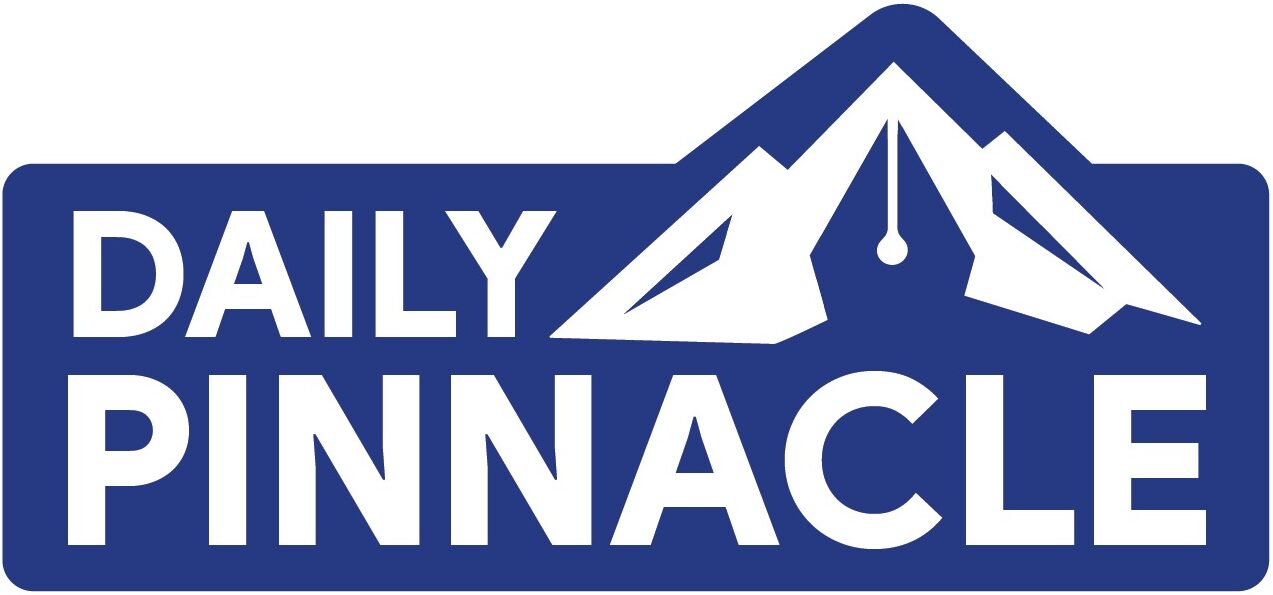In a shocking turn of events, Delhi Chief Minister Arvind Kejriwal found himself behind bars on the evening of Thursday, March 21, following a dramatic visit from the Enforcement Directorate (ED) at his residence. The arrest is linked to the infamous Delhi liquor policy scam, a saga that’s been brewing for a while.
Earlier that day, the Delhi High Court made it clear that Kejriwal wouldn’t be shielded from any ‘coercive action’ related to the excise policy-linked money laundering scam. The ED alleges that Kejriwal, along with other top brass of the Aam Aadmi Party (AAP), was involved in a murky conspiracy with BRS MLC K Kavitha and the notorious ‘South Lobby, resulting in a hefty kickback of Rs 100 crore.
What’s even more intriguing is Kejriwal’s elusive dance with the ED, dodging not one, not two, but nine summonses! This led to the filing of two cases against him under the Criminal Procedure Code (CrPC) in court.
But let’s take a step back. What’s this ‘Excise Policy Scam’ that’s got Delhi’s top man in a tight spot?
Unravelling Arvind Kejriwal’s Involvement in the Delhi Liquor Policy Scam
On November 17, 2021, during the heights of the COVID-19 second wave, the Delhi government rolled out its Excise Policy 2021-22, aiming to revamp the retail liquor sector, enhance consumer experience, and boost revenue by a whopping Rs 9,500 crore. The policy, spearheaded by Kejriwal’s government, aimed to replace 600 government-operated liquor stores with privately owned ones, marking a significant shift in the liquor retail landscape.
Delhi Govt’s excise dept claims 60% rise in revenue based on tenders.
| Fee for a Year | Old Policy | New Policy | Change |
| Fee From Distributors | Rs 10 lakh | Rs 5 crore | 4,900% |
| Fee From Retailers | Rs 8 lakh | Rs 11.18 crore | 13,875% |
| Govt Revenue | Rs 6,000 crore | Rs 9,500 crore | 58.3% |
Key reforms introduced by the policy included:
Flexibility for Licensees to Offer Discounts
This reform allowed retail liquor licensees to provide concessions, rebates, or discounts on the Maximum Retail Price (MRP) of alcoholic beverages. This move was aimed at promoting competition among retailers, leading to better prices for consumers. It also enabled licensees to attract more customers through promotional offers and discounts, thereby increasing sales and revenue.
Removal of Iron Grilles at Liquor Vends
Traditionally, liquor stores in Delhi were often enclosed behind iron grilles, limiting visibility and accessibility. The new policy mandated the removal of these grilles, transforming the stores into open, walk-in establishments. This change was intended to enhance the shopping experience for consumers, allowing them to browse and select their preferred brands in a more inviting and comfortable environment.
Home Delivery of Liquor Through Websites and Apps
In a significant shift towards digitalization, the policy permitted the home delivery of liquor in Delhi through online platforms, including websites and mobile applications. This initiative aimed to provide convenience to consumers, enabling them to order alcoholic beverages from the comfort of their homes. It also helped reduce crowding at physical stores, especially during the COVID-19 pandemic.
Opening of Stores in Various Commercial Areas
The policy allowed the opening of liquor stores in diverse commercial settings, such as markets, malls, commercial roads, local shopping complexes, and other suitable locations. This increased the accessibility of liquor outlets to consumers and provided opportunities for businesses to tap into different markets. It also aimed to distribute liquor stores more evenly across the city, reducing congestion in certain areas.
Reduction of Dry Days From 21 to Three Per Year
The policy significantly reduced the number of dry days in Delhi from 21 to just three per year. Dry days are specific dates when the sale of alcohol is prohibited. By decreasing the number of dry days, the policy aimed to boost the liquor industry’s revenue and cater to the demand from consumers who wish to purchase alcohol on more days of the year.
Extended Bar Hours in Hotels and Restaurants Till 3 AM
To promote the hospitality and nightlife sectors, the policy extended the operating hours of bars in hotels and restaurants, allowing them to serve alcohol until 3 AM. This move was intended to enhance the nightlife experience in Delhi, attract more tourists and locals, and increase revenue for establishments in the hospitality industry.
Delhi Liquor Policy Scandal: Unravelling the Knots of Controversy
The Delhi liquor policy, a well-intentioned move aimed at breaking free from the age-old “fun is sin” socialist mindset, could have been a beacon of progressive governance. With its promise to lower taxes and drinking age to more reasonable levels, it held the potential to modernize the liquor industry in the capital. However, the dramatic increase in retail commission by a staggering 10 times raised eyebrows, hinting at a scam lurking beneath the surface. The hashtag #DelhiLiquorScam seemed almost prophetic.
The Financial Puzzle: Tracing the Money Trail
The crux of the controversy lies in the financial implications of the new policy. According to India Today, under the old regime, the government’s earnings on a bottle were substantial, but the new policy saw a drastic reduction in government revenue, with a corresponding windfall profit for retailers.
- Old Policy: Government earnings (excise duty & VAT) per bottle were ₹329.89.
- New Policy: Government earnings per bottle plummeted to ₹8.32, a loss of ₹321.57 per bottle.
Impact of Delhi’s new liquor policy
| Old Policy | New Policy | Change (%) | |
| Excise Duty | Rs 233.09 | Rs 1.88 | -99.2 |
| VAT | Rs 106 | Rs 1.9 | -98.2 |
This raises several critical questions:
- Why would Kejriwal, an astute politician and former IRS officer, risk legal consequences for such a policy?
- Has the Enforcement Directorate (ED) established a clear money trail, and if not, why?
- If the government revenue increased and consumers paid less, can this still be considered a scam?
The Larger Picture: Comparing Scams
The debate around the Delhi liquor policy scam opens up comparisons with other controversial financial schemes like electoral bonds and the PM Cares fund. If the Delhi liquor policy is deemed a scam, then what does that say about these other schemes?
Sales Figures and Legal Loopholes
In 2021-22, the Delhi government earned a revenue of Rs 6,762 crore from excise and VAT on the sale of liquor.
After scrapping the new excise policy, the Delhi government switched to the old regime on September 1 2022.
According to official data and PTI reports, the Delhi government earned a revenue of Rs 3,588 crore in April-September 2023-24. The revenue from liquor trade included Rs 2,457 crore as excise duty and Rs 1,131 crore as value-added tax (VAT) on the sale of 27.6 crore liquor bottles during the period.
The new policy led to a surge in liquor sales, with the number of litres sold per month almost doubling. This was achieved by lowering the drinking age and extending sales hours. But at what cost? The policy allowed manufacturers to open retail shops, a move that was illegal under the rules.
The Plot Thickens: What Went Wrong?
The policy, however, started to unravel when a report by Chief Secretary Naresh Kumar hinted at potential procedural irregularities. Following this, the Delhi government hastily withdrew the policy.
Accusations flew thick and fast, with then Excise Minister Manish Sisodia allegedly making “arbitrary decisions” that led to financial losses for the government. Meanwhile, some AAP leaders were rumoured to have pocketed kickbacks.
Enter the Central Bureau of Investigation (CBI) and the ED, each filing separate cases to probe the alleged scam. The investigation spotlighted “gross procedural lapses” and “undue benefits” to liquor licensees, including a controversial waiver of Rs 144.36 crore on license fees.
The Domino Effect: Other Arrests in the Case
Following the trail, the CBI and ED have made several high-profile arrests, including AAP’s Manish Sisodia, Rajya Sabha MP Sanjay Singh, and communications in-charge Vijay Nair. The spotlight also fell on the ‘South Lobby,’ with members like Sarath Reddy and Magunta Srinivasulu Reddy under the scanner.
The plot took a dramatic twist with the arrest of K Kavitha, daughter of former Telangana Chief Minister K Chandrasekhar Rao, linking her to the ‘South Group’ involved in the scam.
Arvind Kejriwal in the Crosshairs: The Allegations
The heat turned up on Kejriwal when Kavitha’s arrest led the ED to label him a “conspirator” in the scam. Reports suggest that Kejriwal, along with Sisodia, allegedly sought favours in the policy formulation, with Kavitha purportedly dishing out Rs 100 crore to AAP leaders.
Here’s more context:
The AAP Conundrum: From Anti-Corruption Champions to Scandal Subjects
The AAP, which rose to power on an anti-corruption platform, now finds itself embroiled in a scandal that seems to contradict its founding principles. The call for a CBI investigation by the Chief Secretary highlights the gravity of the situation.
As the saga unfolds, the question remains: Will Kejriwal’s arrest unravel more threads in the Delhi liquor policy scandal, or is this just the tip of the iceberg?
Also read: Electoral Bonds Unmasked



